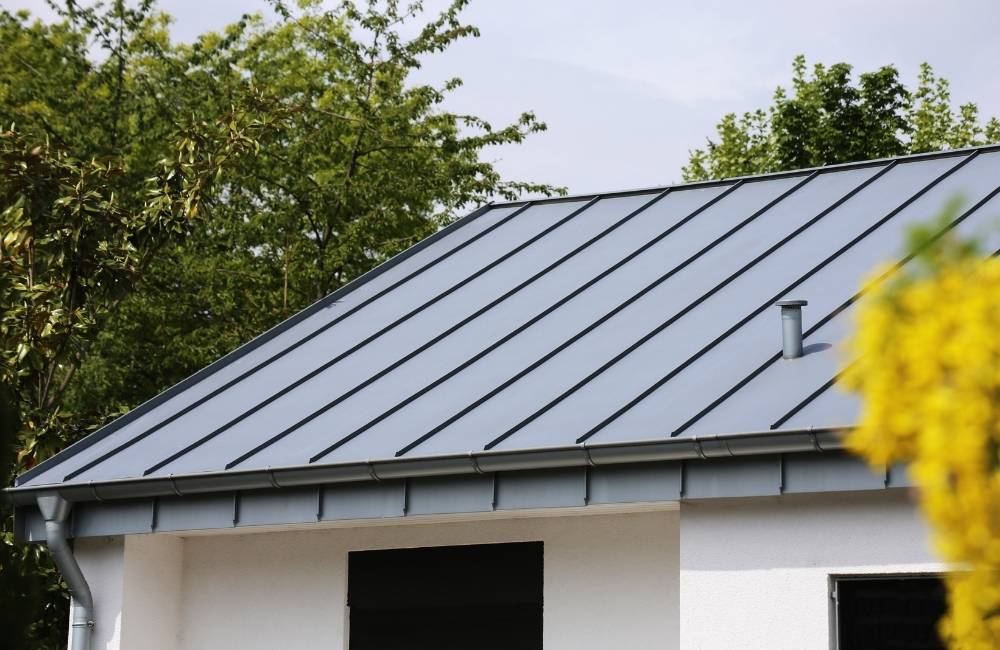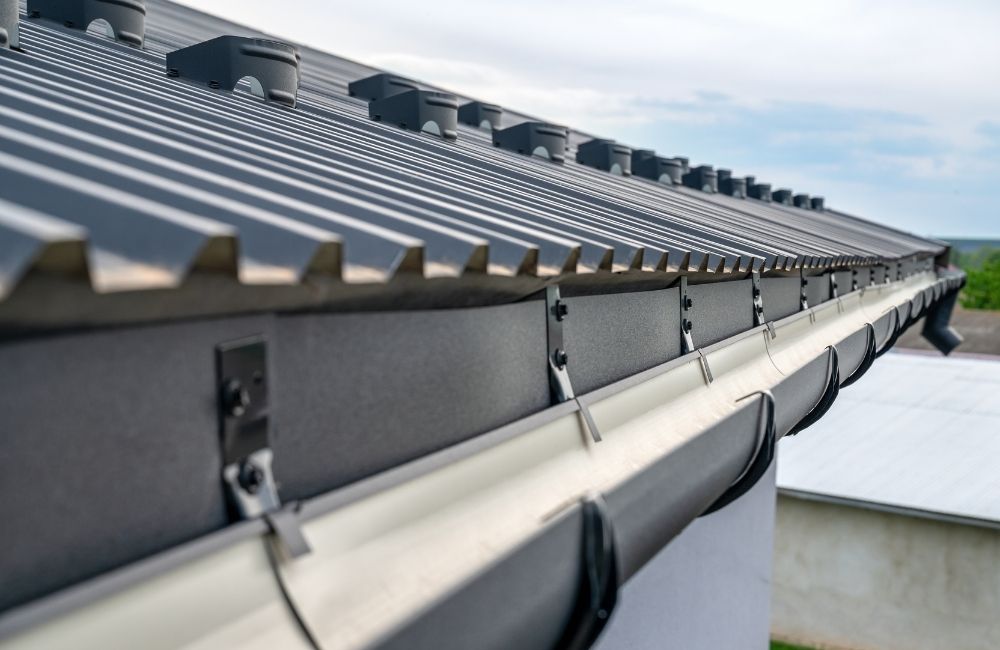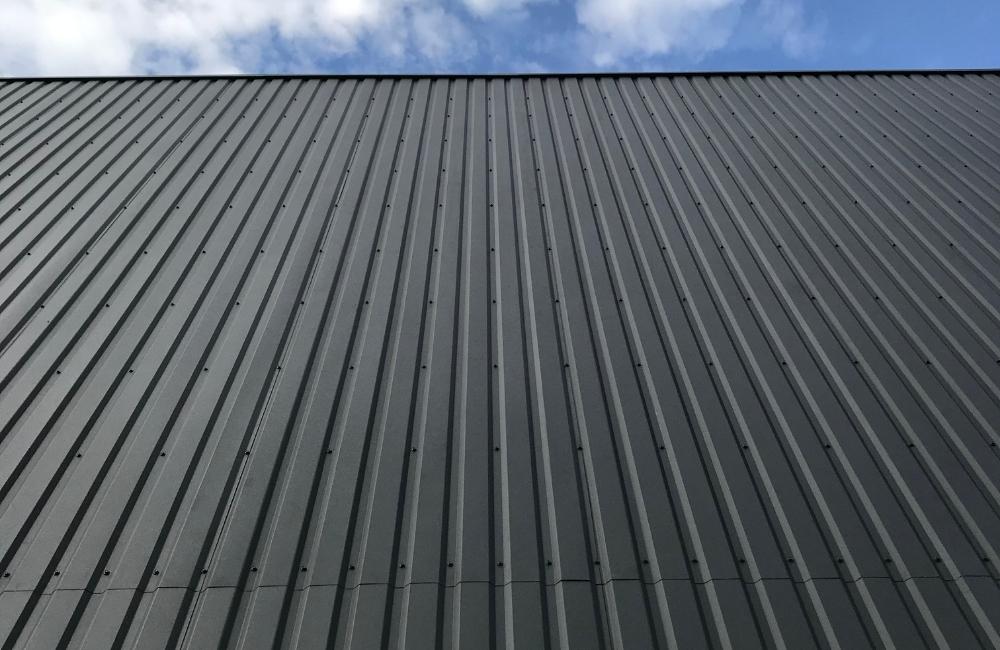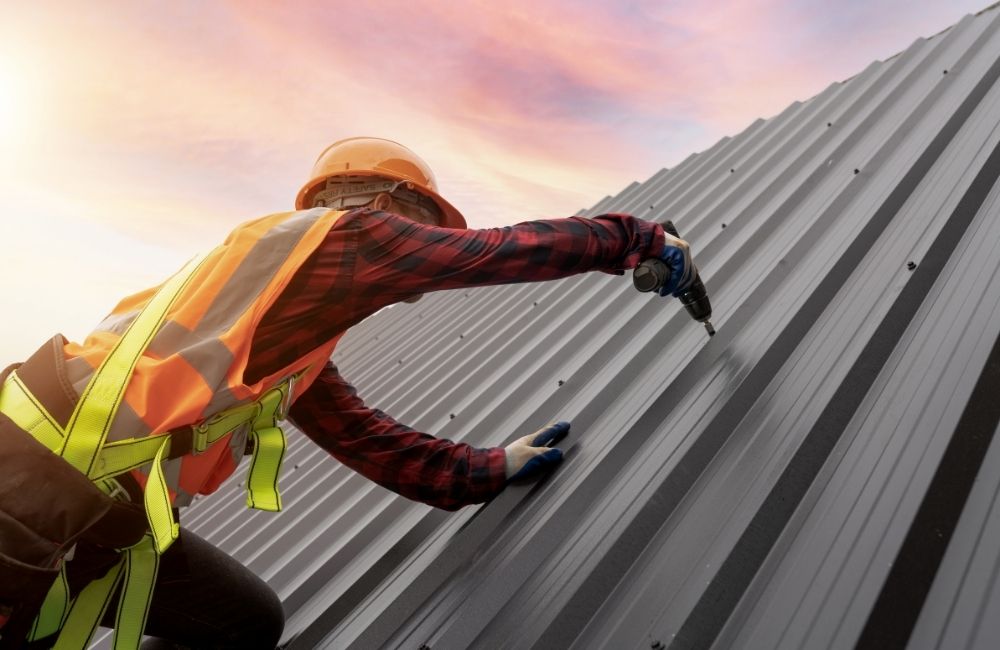- Free Estimates

Metal roofing is known for its durability and longevity, but even the strongest materials need proper maintenance to maximize performance. One of the most effective ways to protect and enhance a metal roof is by applying a high-quality coating.
As the metal roofing industry undergoes major transformation, given the rise of sustainability goals, new technologies, and evolving construction needs—property owners often ask, “what is the best coating for metal roof?” to ensure they get the most out of their investment.
Here are the benefits, available types, and when to consider professional help for metal roof coating.
✔ Acrylic coatings are ideal for hot, sunny climates due to their high reflectivity and low VOC content, but lack durability in ponding water conditions.
✔ Silicone coatings offer the best waterproofing and long-term durability, making them perfect for wet, humid environments.
✔ Polyurethane coatings are abrasion-resistant and suited for high-traffic or industrial roofs but require more complex application and layering.
✔ Asphalt-based coatings are the most budget-friendly option, best for temporary or low-demand use, but offer limited reflectivity and lifespan.
A metal roof coating serves as a barrier between the roof surface and the harsh external environment. UV rays, rain, snow, and fluctuating temperatures can cause metal roofs to expand, contract, corrode, and eventually deteriorate. A protective coating helps resist these forces, providing a longer service life.
A quality roof coating for metal roof applications not only prevents rust and corrosion but also improves energy efficiency. Reflective coatings deflect sunlight, reducing the internal temperature of the building and lowering cooling costs. In fact, metal roofs can reduce energy costs by as much as 40%. That said, applying a new coating is more cost-effective than replacing the entire roof in most cases.
Metal roof coatings are also a form of preventive maintenance. They seal seams, cover fasteners, and reduce the risk of leaks. These benefits make the selection of a proper coating for metal roof structures a critical decision for building owners and facility managers alike.
Before selecting what is the best coating for metal roofs, it’s essential to understand the issues coatings are designed to address. A properly chosen and applied coating can solve:
Seams and fasteners are common entry points for water. Over time, the expansion and contraction of metal panels can lead to tiny gaps that allow moisture to enter. A roof coating for metal roof surfaces seals these vulnerable areas and prevents water intrusion.
Small leaks may be isolated, but if they appear in multiple areas, the roof coating is likely failing as a moisture barrier.
Exposure to moisture and pollutants leads to rust and corrosion, especially around fasteners and seams. A metal roof coating prevents air and water from reaching the metal, slowing or stopping the rusting process.
If rust spots are spreading or the surface feels flaky, the existing coating has likely failed. A new coating for metal roof protection can halt further corrosion.
Continuous exposure to sunlight degrades uncoated metal, resulting in chalking, fading, and heat buildup. Reflective coatings are specifically designed to reduce UV absorption, extending the life of the roof.
Peeling, cracking, or bubbling of the existing coating is a red flag. These issues compromise the waterproofing layer and should be addressed immediately.
Temperature swings cause metal roofs to expand and contract, which leads to stress on seams and joints. A flexible coating for metal roof applications helps accommodate this movement without cracking or peeling.
Increased cooling bills in summer months may indicate that the roof’s reflective properties have diminished. A fresh coat of reflective material can improve insulation.

Selecting the right roof coating for metal roof protection goes beyond picking a product off the shelf. Multiple variables affect the coating’s performance, durability, and long-term value. Understanding these considerations helps building owners choose what is the best coating for metal roofs based on the property’s environment, function, and condition.
Weather is a major determinant in coating selection.
The physical state of the metal roof impacts preparation and product choice.
Not all coatings serve the same purpose. Clarifying the primary goal helps narrow the options.
The shape and pitch of the roof can influence coating selection.
Some coatings are easier to apply than others and may affect labor costs or feasibility.
Initial pricing should be weighed against long-term performance.
Local building codes or environmental laws may influence your options.

There are several major types of coatings used to protect and enhance metal roofing systems. Each one comes with distinct advantages and limitations depending on climate, building use, and budget. To determine what is the best coating for metal roof performance, it’s important to understand the unique characteristics of each type.
Acrylic coatings are among the most popular for metal roofs due to their affordability and strong UV protection.
Ideal roof coating for metal roof systems in hot, arid, or temperate climates seeking energy savings and a balance between performance and budget.
Silicone coatings are known for their excellent waterproofing and longevity, making them a favorite in rainy regions.
The best roof coating for metal roof structures in humid or storm-prone environments is needed for maximum water protection.
Polyurethane is a rugged and impact-resistant coating often used in commercial and industrial roofing applications.
Recommended coating for metal roof surfaces exposed to heavy equipment, foot traffic, or mechanical wear, such as in warehouses or factories.
Asphalt coatings are a traditional solution offering basic protection at a low cost.
Suitable coating for metal roof systems in low-budget projects or where energy performance is not a priority.
While applying a roof coating for metal roof systems might appear straightforward, several conditions make professional help not only beneficial but necessary. Hiring a professional doesn’t just improve the outcome—it helps avoid costly errors, accelerates project timelines, and protects your investment.
For those who are truly focused on finding what is the best coating for metal roof durability and protection, involving experts is the most effective approach.

Silicone roof coatings are widely considered the longest lasting, often providing protection for 15 to 20 years with minimal maintenance. Their resistance to ponding water, UV rays, and extreme temperatures contributes to their longevity. Recoating intervals are longer compared to acrylic or asphalt-based options.
Polyurethane finishes are among the most durable, especially in high-traffic or industrial environments. They resist impact, abrasion, and physical wear better than most other coatings. When applied correctly with a UV-stable topcoat, they offer long-term strength and performance.
A high-quality synthetic underlayment is often the best material to place under a metal roof. It provides a water-resistant barrier, helps with insulation, and prevents leaks. Compared to felt, synthetic underlayment offers better durability and lifespan.
Coated iron roofs can be more expensive upfront, especially when premium coatings like silicone or polyurethane are used. Some coatings, like silicone, can be difficult to recoat or repair later. Additionally, improper application or surface prep can lead to premature coating failure.
Lighter-colored metal roofs, such as white, beige, or light gray, tend to last longer due to their ability to reflect sunlight and reduce thermal stress. This reflectivity helps minimize expansion and contraction, which can extend the life of the roofing system. Darker colors absorb more heat and may degrade faster in sunny climates.
If you’re looking for reliable, long-lasting protection for your metal roof, trust the experts at Roofer of Wappingers Falls LLC. Serving homeowners and businesses throughout Wappingers Falls, NY, our team delivers expert metal roof coating services tailored to the region’s climate and your roof’s specific needs.
Whether you’re dealing with rust, leaks, or just want to improve energy efficiency, Roofer of Wappingers Falls LLC uses top-grade materials and proven application techniques to ensure results that last. As a trusted contractor in Wappingers Falls, NY, we offer free estimates, guaranteed workmanship, and decades of experience working with residential and commercial metal roofs.